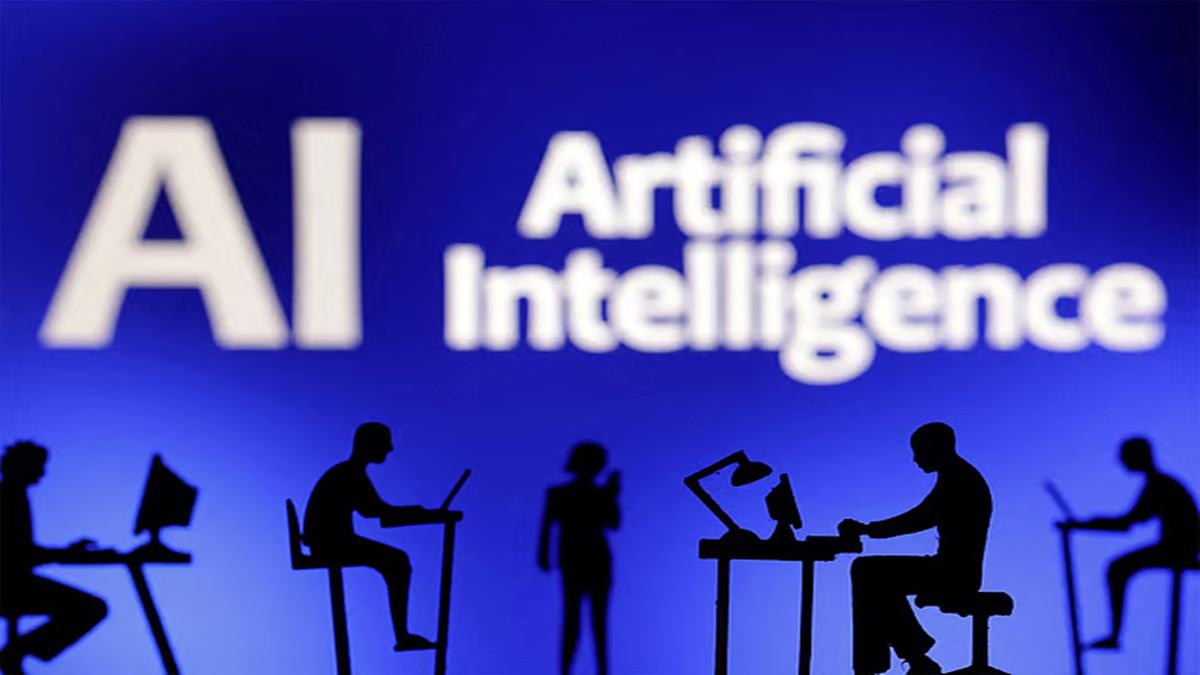AI and robots will replace all jobs. Working will be optional — like growing your own vegetables instead of buying them from the store.” This was how the world’s foremost innovator and entrepreneur, Elon Musk, reacted to a New York Times story on Amazon — the second-largest employer in the US, with over 1.2 million employees — which is quietly working to replace almost half of its workforce with robots.
The NYT story has dropped the ‘automation bomb’, which only a few years ago sounded like another Hollywood sci-fi plot. It no longer is, if you go by Amazon’s plan to automate 75% of its operations.
According to the report, Amazon’s robotics team plans to replace more than 600,000 jobs with robots. The calculus is purely economic: achieving this could save 30 cents on every processed and delivered item. Automation would also help the company avoid hiring 1,60,000 US employees by the end of 2027, resulting in savings of about $12.5 billion over the next two years.
This is not a distant vision — its testing ground is in Shreveport, Louisiana, where a warehouse swarming with a thousand robots operates with 25% fewer humans. The company’s strategy involves drastically slowing hiring and reducing its workforce through attrition, with the explicit goal of “flattening Amazon’s hiring curve over the next 10 years”.
The NYT report quoted Daron Acemoglu, MIT professor and Nobel laureate in economic sciences, as saying: “Nobody else has the same incentive as Amazon to find the way to automate… Once they work out how to do this profitably, it will spread to others too.”
Operations in India, where labour remains cheaper than robots, are untouched by this development — at least for now.
Walmart, another retail behemoth, is following suit. The company is aggressively automating its supply chain, with over half its distribution centres currently undergoing upgrades. By the end of this year, Walmart expects 65% of its stores to be serviced by these high-tech hubs.
The reach of this technological wave extends far beyond the warehouse floor. Industrial shop floors are now testing the next level of automation, replacing task-specific robots with humanoids that — unlike traditional robots — “hold the promise of broad adaptability across a wide range of functions”, according to a McKinsey report. Automotive giants like BMW, Mercedes-Benz, and Tesla are already experimenting with humanoid-run shop floors.
The corporate office, once the bastion of human-centric knowledge work, is now a primary target for AI-driven efficiency. McKinsey’s analysis shows the consumer sector is particularly ripe for disruption. By 2035, technology — from basic automation to generative AI — could affect up to 55% of workers’ current activities, “from the front line up through the C-suite”.
Indian fallout
The Indian IT sector — one of the country’s biggest job creators over the past three decades — is also realigning its operations and workforce to adapt to disruptive technologies such as AI and machine learning (ML). The massive job cuts at TCS are being attributed to its need to make itself “future-ready” for an AI-led era. It is no longer mere speculation that AI can perform the work of coders and developers.
Technology giant IBM recently announced the development of ‘Bob’ — a personified AI agent that supports the full lifecycle of application development, from coding to deployment.
“It’s part of our push to integrate agentic AI into development workflows,” says Hans Dekkers, General Manager, IBM Asia Pacific. “We currently have 8,000 IBM developers actively using Bob internally.” He, however, reiterates that these personified developers are meant to support human developers, not replace them.
Nobody wants to talk about job losses
While AI and automation promise greater productivity and efficiency, few in the corporate world are willing to openly acknowledge the massive workforce displacement they entail.
The India head of a top global technology company, when asked about potential job losses due to AI and large-scale automation, scoffed at the question. “We must move beyond talking about replacement of jobs, and instead speak about the benefits automation and AI entail,” he said.
The NYT story on Amazon explains how the retail giant is using “smart” terminology to avoid words like automation and AI. Instead, it has instructed its leadership to use alternatives such as advanced technology and cobot (collaborative robot). Manufacturing companies, on the other hand, prefer euphemisms like smart manufacturing or Industry 4.0 to sidestep the stigma associated with automation — which immediately evokes fears of mass layoffs. Reskilling has become the industry’s favourite refrain, allowing leaders to avoid the uncomfortable discussion of job losses. Very few, like Elon Musk, have been candid in admitting that jobs will indeed be sacrificed on the altar of automation.
The Economic Survey 2024–25, released in January this year, raised similar concerns. “With increasing adoption of AI across various sectors, employees are concerned about its effects on the job market,” the report noted, adding that anxieties about AI’s impact remain high in India.
“As India’s workforce in low-skill and low-value-added services remains vulnerable to AI, robust enabling institutions are essential to help transition workers to medium- and high-skilled jobs, where AI can augment their efforts rather than replace them,” the Survey said. The replacement of jobs by AI and robots still largely depends on cost-effectiveness. “For humanoids to compete with human labour across mainstream sectors, product costs must fall into the $20,000–$50,000 range per unit (from the existing $1,50,000–$5,00,000); potentially greater reductions may be necessary for humanoids in consumer-facing environments such as homes, retail, and hospitality,” says McKinsey.
In India, however, it is AI — more than robots or humanoids — that poses the immediate threat.
That is why Chief Economic Adviser V Anantha Nageswaran, in the Economic Survey 2023–24, highlighted AI’s emergence as casting “a huge pall of uncertainty” over workers across all skill levels — one of the three key challenges to India’s growth. It remains so, as “the social impact of AI through labour market disruptions and displacement is barely understood.”
Nowhere is this shift more evident than in India’s $250-billion IT services industry. Long the engine of global tech outsourcing, the sector is navigating a perfect storm — subdued global tech spending and the disruptive momentum of AI. The old model, where revenue growth was directly tied to headcount expansion, is being dismantled. The new mantra: doing more with less.
Responsible AI
There has been a growing call for responsible deployment of AI. The CEA last year warned that “deployment of AI could have a deleterious impact on jobs.”
Former Managing Director of Nestlé India, Suresh Narayanan, said his company has been “selective” in its use of AI and is developing use cases across planning, logistics, automation, and manufacturing excellence. “These use cases will be gradually deployed where there’s a direct impact on business growth, productivity, or cost. We are not taking a random approach to automation. Instead, we follow a roadmap — especially for forecasting and supply chain models,” he told this newspaper.
The International Labour Organisation (ILO), in one of its reports, notes that achieving positive and inclusive labour market outcomes — including potential productivity gains — depends on responsible AI innovation and adoption.
While reskilling is widely touted as the solution to the threat of automation, the ILO highlights the challenges of imparting such skills. It points out that machine learning and AI — alongside software, technical, and managerial skills — are among the most complex and high-value skill sets. “Importantly, they are typically built upon a foundation of general computer skills, core cognitive and sophisticated cognitive skills, and in some instances also finger dexterity skills,” the report states.
Musk, however, has proposed a more radical solution to the prospect of mass job losses due to automation: governments should support a large section of society through Universal Basic Income.




















